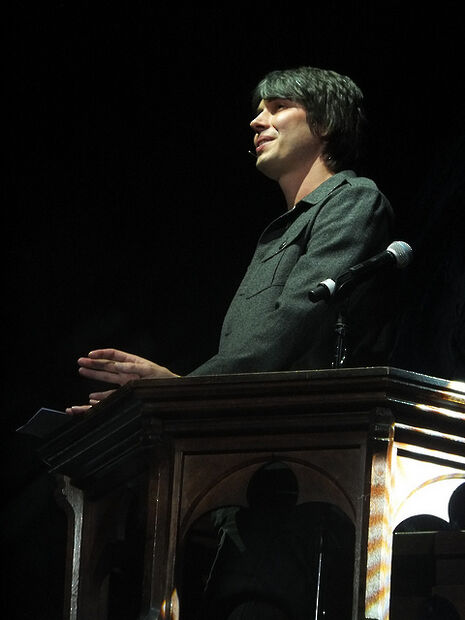Manchester becomes most exclusive university in the country for Physics – overtaking Oxbridge
The university now asks for two A* grades at A-Level for its undergraduate Physics degree, amid a national surge in uptake for the subject

Manchester University has overtaken Cambridge, Oxford and Durham by demanding two A* grades at A-Level for its physics degree course. The university course is now the most elite in the country. The surge in uptake has been dubbed the Brian Cox efect; the professor lectures on quantum mechanics there and has popularised science in recent years. The surge in demand is also being driven by the employability of graduates, changes in school level physics teaching and high profile developments in research.
At degree level, numbers enrolling on undergraduate physics courses have increased by 50 per cent in eight years. The course at Manchester has always been popular, yet Professor Cox has been widely credited with reviving interest in the subject through his documentaries and TV shows. Last week saw the return of Stargazing Live on BBC Two primetime. The show is broadcast from the University of Manchester’s Jodrell Bank Observatory, another of the university’s assets likely to attract students.
The university’s admissions tutor explained that not only had Brian Cox boosted the university’s profile but may have fuelled the national increase in physics applications, which is greater than any comparable science subject.
In 2012, 34,509 students took A-Level Physics, up five per cent on the previous year. Before 2005, the government had labelled Physics as a ‘vulnerable’ subject. A target of 35,000 students studying A-Level Physics was set for 2014 several years ago, and was viewed with scepticism. despite these pleasing statistics, Figures from 2011 suggest that there is a gender divide of approximately one girl for every four boys achieving A-Level Physics.
The growth reflects the high-profile coverage of physics in the media in recent years, including the research at the Large Hadron Collider at CERN, the discovery of the Higgs boson particle, and the wider reporting of Nobel Laureates in Physics.
The employment prospects of physics graduates are increasingly appealing, with over 40 per cent of companies complaining about the dearth of graduates with science and maths skills. rapidly growing sectors of the UK economy, such as engineering, are increasing demand for such expertise. There has also been a steady increase in the number of qualified physics teachers in secondary schools, in addition to a change in the way physics is taught to be less dry and more inclusive which is yet another factor.
Astronomy in particular is seeing a large 40 per cent rise in university applications. Sales of telescopes have increased five-fold, which seems to suggest a surge in popularity at grassroots level.
Some reports have attributed the rise in popularity to TV shows such as The Big Bang Theory. Prof. Sir Peter Knight, president of the institute of Physics, said the subject had been helped by its “geek-chic” image, which is no longer viewed negatively.
“Certainly, physics has been fortunate in recent years to have benefited from two or three very high profile and gifted TV presenters, firing the beauty of the subject direct into people’s living rooms,” he said.
“Even other programmes, such as The Big Bang Theory, have helped create a geek-chic.
“It’s undoubtedly true, however, that the subject has benefited from strong, positive messages from senior people, including politicians and business leaders, on the employability of physics graduates.”
 News / Cambridge academics sign open letter criticising research funding changes22 February 2026
News / Cambridge academics sign open letter criticising research funding changes22 February 2026 News / Supporters protest potential vet school closure22 February 2026
News / Supporters protest potential vet school closure22 February 2026 News / University Council rescinds University Centre membership20 February 2026
News / University Council rescinds University Centre membership20 February 2026 News / Hundreds of Cambridge academics demand vote on fate of vet course20 February 2026
News / Hundreds of Cambridge academics demand vote on fate of vet course20 February 2026 News / Union cancels event with Sri Lankan politician after Tamil societies express ‘profound outrage’20 February 2026
News / Union cancels event with Sri Lankan politician after Tamil societies express ‘profound outrage’20 February 2026










